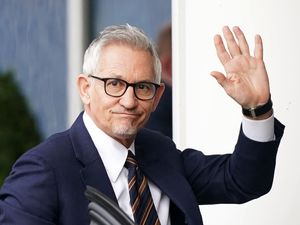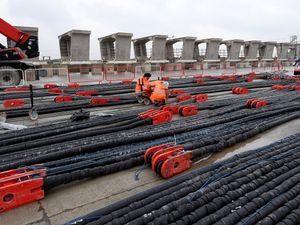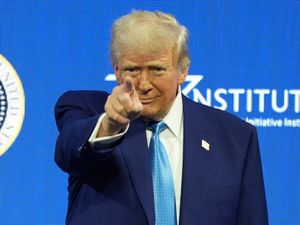Star comment: Lineker row throws up questions of BBC's whole purpose
Whichever side of the fence you sit regarding the Gary Lineker tweet row, there is one thing that most of us can agree on.

The BBC’s handling of the whole situation has been nothing short of atrocious.
The decision to suspend Lineker from his presenting duties over the weekend would have been fine had it been backed by a clear set of rules.
Yet bosses don’t appear to be sure if he did anything wrong with his clumsy comments on UK immigration policy.
Lineker, like fellow ex-player and champagne socialist Gary Neville, is something of a darling of the left. He owns a production company that airs former Labour spin doctor Alastair Campbell’s podcast and over the years has regularly piped up on political matters.
He has also previously spoken out in support of refugees, so the fact that he decided to wade in on this particular issue should have come as no surprise.
It is also true to say that Lineker is, well, filthy rich, meaning he can afford to stand up against his bosses when the mood takes him.
With all of this in mind, the question must be asked what exactly did director general Tim Davie expect to happen when he suspended the presenter? An immediate apology and deletion of the offending tweet followed by a remorse-filled public statement on Match of the Day?
The botched attempt to appear impartial at all costs has resulted in the broadcaster finding itself caught up in an almighty political row that is entirely of its own making.
Critics on the right regularly complain of bias against the Conservatives.
Meanwhile the likes of Labour leader Sir Keir Starmer have accused bosses of caving in to the demands of Tory MPs.
The whole episode paints the BBC in a very dim light at a time when many people are starting to question its future.
Tomorrow will see mass strike action by BBC staff over cuts to local radio, including here in the West Midlands.
Yet at the same time as this decimation of much-needed services, the broadcaster is attempting to expand its online output where it competes with commercial local titles such as the Express & Star and Shropshire Star.
Now that Lineker has agreed to return to presenting duties the BBC will no doubt be hoping to draw a line under the whole matter. The corporation must not get away that easily.
It is time for a long overdue review into its entire purpose going forward. As things stand, whatever interests the BBC thinks it is promoting, it is certainly not those of licence payers.



